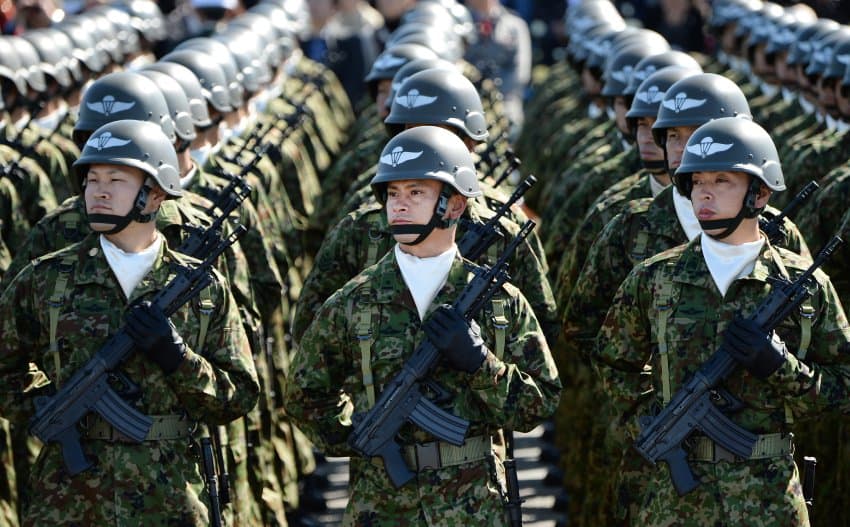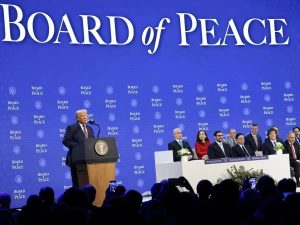TOKYO (Web Desk) – The lower house of Japan’s parliament has approved two controversial bills that change the country’s security laws, despite protests in Tokyo.
The changes would allow Japanese troops to fight overseas for the first time since World War Two.
The bills still need approval from the upper house, but many expect them to eventually be passed into law.
The changes are unpopular and thousands demonstrated outside parliament on Wednesday.
Prime Minister Shinzo Abe has pushed for the two bills, arguing it is necessary to expand the role of the military in a doctrine called collective self-defence.

But polls show more than half of Japanese citizens oppose them.
Reacting to the passing of the bills, China’s foreign affairs ministry spokesman Hua Chunying questioned if Japan was “abandoning its pacifist policies”, and urged Japan to “stick to the path of peaceful development” and avoid harming the region’s stability.
South Korea has similarly in the past urged Japan to “contribute to regional peace and security” and called for transparency in Japan’s defence policy discussions.
Japan’s post-World War Two constitution bars it from using force to resolve conflicts except in cases of self-defence.
Most of the opposition lawmakers walked out of the lower house chamber in protest before the vote took place on Thursday, with only members of the small Japan Restoration Party voting against the bills.

Mr Abe’s Liberal Democratic Party (LDP) and its coalition partners hold a two-thirds majority in the lower house, which is needed to approve bills.
The upper house, where the LDP and partners also hold a majority, now has 60 days to rule on the bills. Even if it rejects them, the bills would be sent back to the lower house which can then pass them into law.














